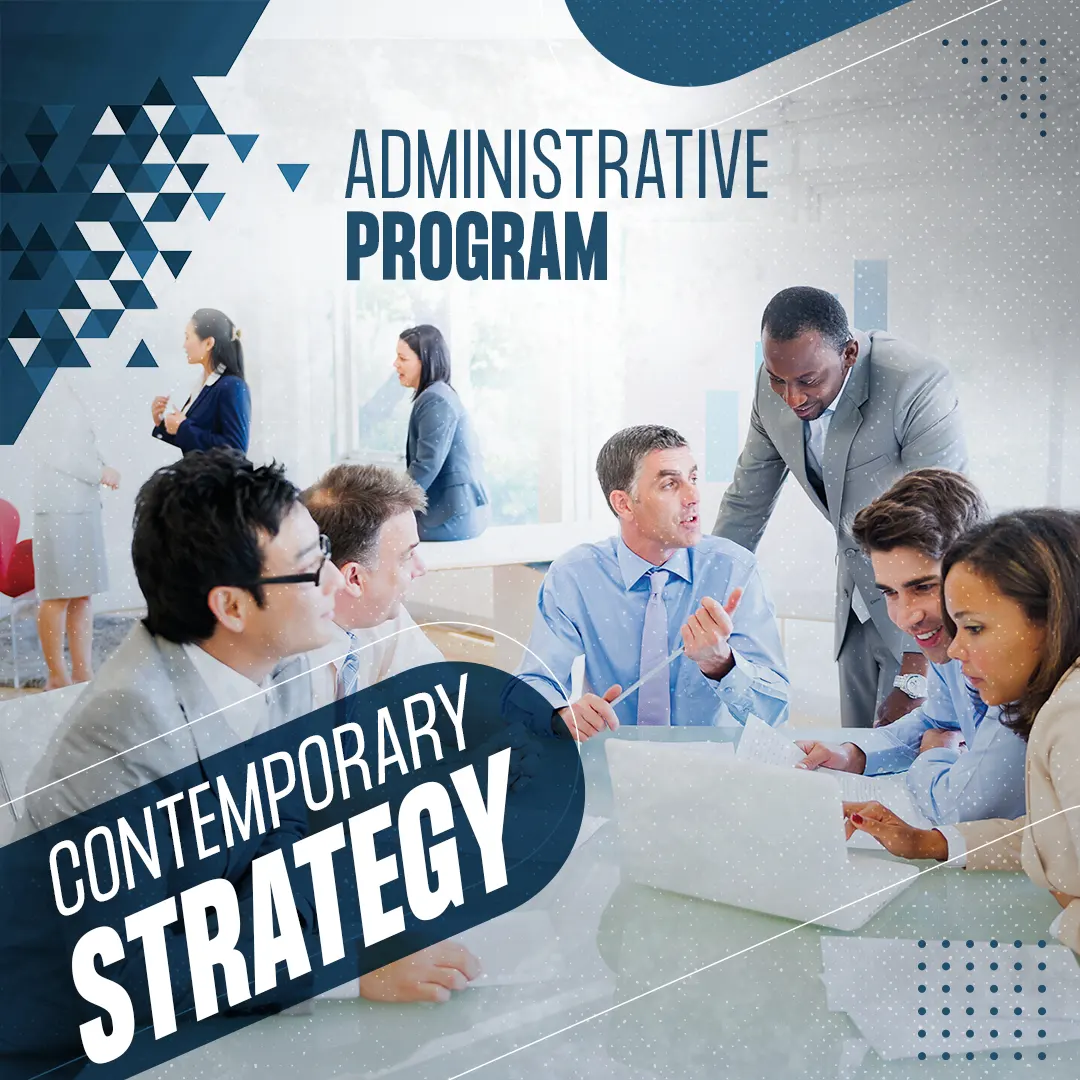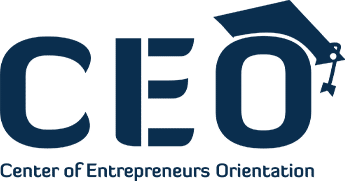Administration Programs
Administration Programs

Center of entrepreneurship provides entrepreneurs and executives with Courses in Business Administration and Skills, which make them qualified to manage and lead their business and work teams to success.
Why choose Center of entrepreneurship ?
- The best specialized Consult for you.
- The best professors in the middle east.
- Professional academic support team.
- The best accreditation.
- The best quality.
- Competitive advantage for pricing system.
Why Study With Center of entrepreneurship ?
- Center of entrepreneurship using the best learning technology.
- Specialized technical team.
- Smart boards.
- Save more money.
- Save more time.
- Live inside the lecture hall.
- Save more efforts.
Contemporary Strategic Management Program

24000 L.E
This course is a complete package on Strategic Management which will help students to gain complete knowledge on Strategy formulation & Implementation.
Without anchoring all tasks and requirements part of the strategy organizations will fail and miss the necessary actions for their future. This course teaches you the essentials of business strategy and tools needed for the analysis. Strategy Management is all about identification and description of the strategies that managers can carry so as to achieve better performance and a competitive advantage for their organization. Strategic Management gives a broader perspective to the employees of an organization and they can better understand how their job fits into the entire organizational plan and how it is co-related to other organizational members.
The latest updates in this course include real-life examples and cases for the tools and techniques you learn during the course. Together with research about trends and arising technologies from leading consulting companies like Flipkart and Uber. This course directs you to the next level in your career.
On completion of this program students will be able to:
• Outline and critique the major perspectives on the conduct of strategy.
• Explain and use the most common tools of strategic analysis.
• Demonstrate an understanding of, and ability to assess the complexities of strategic decision-making.
• Appreciate the nuances of the effect of organizational context on strategy development and implementation.
• Gain an understanding of the specific characteristics of global strategies.
- Strategies- Types, Process of Strategy formulation
- Strategy Intent- Vision & Mission Statement
- Critical Success Factor, Key Result Area & Key Performance Indicator
- Case Studies on Flipkart, Uber & many more
- PESTEL Analysis
- Porters Model of Business Forces & Environmental Scanning
- Competitive Advantage, Bench Marking Strategy
- BCG Matrix Analysis
- SIX SIGMA- Meaning, Process & its Needs
- MBO Strategy & TQM
- Strategy Implementation, Business Re engineering
- Strategy Evaluation & Strategy Control
- Tripple Bottom & Value Chain Analysis
Regional Director
Program

24000 L.E
What is the role of the regional director?
Regional directors manage and guide store managers that report to them. They meet with employees to evaluate business progress and create and institute strategies to accomplish the goals of the company
Support the senior management team, and staff to make consistent and progressive
steps toward organizational and programmatic consistency and sustainability.
• Enhance organizational excellence by establishing operational benchmarks,
timelines, and resources needed to achieve strategic goals, proactively
recommending and driving improvements as necessary; setting standards for
accountability and measurements of success
• Oversee evaluation activities including data collection systems,
longitudinal evaluation, and all contracts and activities relating to program evaluation
and measurement; communicate and prepare all data collection summary reports
and evaluation updates for the Governance and staff.
• Build the morale of Regional staff for the efficient performance of their tasks and promote
harmonious volunteer-staff relationship in the region.
• Perform any other tasks assigned by management.
- Understand how to add value and determine competitive advantage in your organization
- Gain the self-confidence to maximize your role on the board
- Develop the skills and knowledge to facilitate others to fulfill both their individual and
collective potential - Develop board members who fully understand their roles and obligations, and who appreciate the value of shared goals
- Generate greater loyalty, retention, and productivity throughout your organization
- Develop an approach that supports your organization’s reputation and is in line with your values and ethics
Leaders Development
Program

24000 L.E
Innovative companies know that long-term success requires a pipeline of visionary leaders who can help build and secure a competitive edge. The Program for Leadership Development (PLD) prepares emerging executives to become more effective influencers who can contribute to corporate success on a higher level.
This highly personalized program features two on-campus and two virtual, self-paced modules that focus on accelerating your business and your career. You will return to your organization more confident, more capable, and better equipped to take on new challenges.
Focused on leadership, change, and innovation, the Program for Leadership Development curriculum is built around four highly integrated modules. In on-campus or live online modules, you will engage in faculty presentations, case studies, personal assessments, individual and group exercises, and special projects. Through a customized case and professional HBS Executive Coaching, you will develop a personal action plan for tapping new revenue sources and navigating global market shifts.
OALS / PRIORITIES / OUTCOMES THAT LEADERSHIP DEVELOPMENT CAN SUPPORT:
» Retention of high-potential employees;
» Performance on annual reviews and 360-degree assessments;
» Number of employees identified as “High-Potential”;
» Employee morale and job satisfaction;
» Alignment with vision, mission, values, and culture;
» Achievement of annual goals by key teams or departments;
» Transfer of knowledge within your organization;
» Leadership bench strength.
Area Manager Program

24000 L.E
An Area Manager, or Regional Manager, has operational and financial responsibility for a defined region or territory. Their duties include providing training and development for staff, ensuring quality consistency across the region and increasing sales and profitability in their region
Area Managers use leadership and problem-solving skills to manage managers in certain geographical locations. Area Managers have the following responsibilities: Recruit, hire, and train new managers in their direct area Offer consultation and recommendations to store managers on overcoming operations challenges Monitor sales and work toward meeting quarterly objectives Minimize cost and labor by reviewing schedules and inventory use Visit stores to evaluate operations, cleanliness and efficiency of each area
Leadership and Direction • Demonstrates awareness of service trends and sector issues that impact on IHC.
• Prepares business plans (including service and property plan) that provide clear direction for services and are understood
and “owned” by all stakeholders.
• Satisfaction expressed by regional team with direction and leadership provided.
• Builds a culture and develops ways of working which reflect IHC’s values.
Quality Services • Personal Plans reflect individual needs and desired outcomes, and influence service planning and delivery.
• Cardiff Health Checks completed and outcomes monitored for all service users.
• Compliance with quality systems and standards achieved.
• The experience and insights of disabled people and their family/whanau are heard and incorporated into service
improvements.
Organisational Development • Enhances the quality of services IHC currently provides to meet each person’s needs and goals.
• Builds on our responses to peoples’ needs and grows the range of services.
• Identifies new opportunities to develop our services.
Financial Management • Achieves area budget.
• Demonstrates a pro-active approach to revenue generation and careful monitoring of costs.
• Demonstrates understanding of financial position, including management of variances.
• Prepares operating, property and fundraising budgets within given timelines.
• Manages, traces and reports service user movements on a timely basis.
• Provides invoicing information for government contracts accurately and on time.
• Understands and actions internal audit findings.
• Monitors staff performance to ensure accuracy and timeliness of key administration processes (payroll, debtors,
attendance registers, etc.).
Human Resources Development • Annual competency assessments and career development plans completed within the time frame set for all direct reports.
• Maintains good employer practices as evidenced by: success in managing employment issues; level of outstanding
annual leave; absentee rate; staff turnover; and staff injury rate.
• Meets core training targets for all staff.
• Develop leaders across the Area in all aspects of service delivery.
Health and Safety • Comply fully with health and safety legislation and internal practices.
• Staff are well informed, trained and understand their responsibilities for health and safety in the workplace.
• An effective hazard management programme is in place to identify, assess and manage actual and potential hazards.
• Incidents and injuries are reported, recorded and investigated, and appropriate corrective actions are taken.
• Injured or ill staff are rehabilitated and assisted to stay at or return to work promptly
Chairman Program

24000 L.E
When companies go off track – unexpected risks become reality, unplanned-for claims arrive without notice, and a sudden vacancy appears among top management – shareholders look to the Board of Directors for an explanation and a remedy. But how do we know if directors are effective? And how should we measure their performance? This course examines ‘what good looks like’ for members of a board when carrying out their duties – including the Board chairman, the Company Secretary, and non-executive directors.
- The Effective Board Director
- Leadership, Independence, and Governance
- Performance Measurement and Remuneration of Directors
- Running an Effective Board Meeting
- Course Review
Upon completion of this course, you will be able to:
- Describe what the legal duties of a director are.
- Implement a performance measurement structure for individual directors and the board as a whole.
- Implement an Action Plan at your workplace using the knowledge and skills acquired through the course.
Entrepreneurship Program

12000 L.E
Entrepreneurship promotion and development Programmes are being organized regularly to nurture the talent of youth by enlightening them on various aspects of industrial/business activity required for setting up MSEs. These Programmes are conducted for youth and other people interested to set up their own industrial/self-employment venture. Such activities are also organized in ITIs, Polytechnics and other technical institutions/business schools, where skill/talent is available to motivate them towards self-employment.
The objective of this program is to motivate an individual to choose entrepreneurship as a career and to prepare the person to exploit the market opportunities for their own business successfully. These objectives can be set both on a short-term and long-term basis.
- Short-term objectives: These objectives can be achieved immediately. In the short term, the individuals are trained to be an entrepreneur and made competent enough to scan the existing market situation and environment. The person, who would be the future entrepreneur, should first set the goal as an entrepreneur. The information related to the existing rules and regulations is essential at this stage.
- Long-term objectives: The ultimate objective is that the trained individuals successfully establish their own businesses and they should be equipped with all the required skills to run their businesses smoothly.
- The overall objectives are mainly to help in the rapid growth of the economy by supplying skilled entrepreneurs. This program primarily aims at providing self-employment to the young generation.
1-Introduction.
2- What Is the Definition of Entrepreneurship?
3-Types of Entrepreneurship.
4-What Is an Entrepreneur?
5-Types of Entrepreneurs.
6-How to Become an Entrepreneur?
7-Entrepreneurship Financing.
8-Resources for Entrepreneurs.
Top Managers Program

48000 L.E
Whether you’re new to a management role and need a broad introduction to the art of leadership, or are a seasoned leader in need of a refresher on leading effective
A step-by-step guide to your first 94 days as a manager
Communicate directly and clearly
- Give and receive constructive feedback
- Recognize different stages in a group’s development
- Adjust your own behavior related to the development stage of the group
- Understand the need for and use of different leadership styles
- Set clear and effective guidelines for team behavior
- Distinguish between management and leadership
- Understand and manage conflicts
- Clarify expectations and focus efforts of the team
- Acknowledge colleagues in a way that supports healthy work relationships
- Understand how values influence relationships and leadership
- Motivate individuals and teams in a productive way
- Build trust and successful work relationships
- Excel in the management role with its unique demands and expectations
- Planning the operations of your team
- Coaching your coworkers to better performance, well-being, and results
- Effective delegation of tasks
- Make great decisions by yourself or with a group
- Work with reflection and learning, individually and in a team
We designed this program to be easily understood and applied by absolute beginners. The program has over 35 downloadable resources that you can use for future reference, including guides, checklists, textbooks, illustrations, and assessments.
You will walk away from this course with a solid toolbox of skills and knowledge that you can use to succeed in your new management role.
- You will be able to communicate more clearly, give and receive constructive feedback, and manage conflicts.
- You will understand group dynamics and be able to adjust your leadership to the development stage of your team.
- You will avoid energy drains by clarifying expectations, and guidelines for behavior and working with values. You will be able to motivate yourself and others and build trusting and effective relationships while managing the challenges related to the management role.
- You will be able to plan and execute the work of yourself and your team, both in the day-to-day operations and in the long term.

